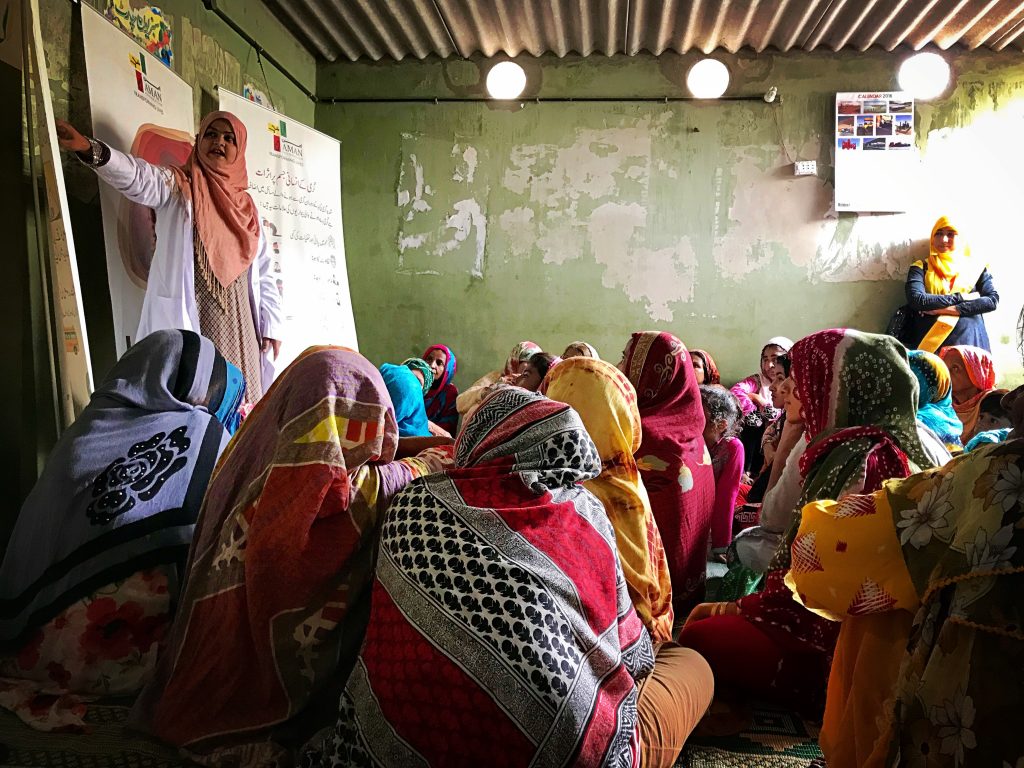Shaping the health response to extreme heat in Pakistan

With heatwaves expected to rise due to the climate crisis, there is increased need for locally informed, evidence-based interventions to manage their impacts on health and wellbeing. This study developed and tested an intervention to reduce the impact of extreme heat. The intervention and study engagements improved knowledge and care practices of emergency department staff in Karachi hospitals, as well as the ability of communities to protect themselves from heat-related illnesses. There were impacts on staff at the hospitals and at the Aman Foundation and the findings contributed to new evidence-based care strategies for both settings. These changes indirectly informed the new Karachi Heatwave Management Plan, published by the Commissioner of Karachi.
Impact from the study may be primarily short-term, recognising that driving behaviour change to improve health outcomes requires long-term focus. If the initial interest from national stakeholders in HEAT can be sustained, it has the potential to influence care practices in other cities in Pakistan, and in heat-affected cities worldwide.
R2HC captures detailed case studies through a process that triangulates and validates evidence on uptake and impact. The case study methodology and full version of this summary case study including references are available on request. Outputs and resources from this study are available on the project page.